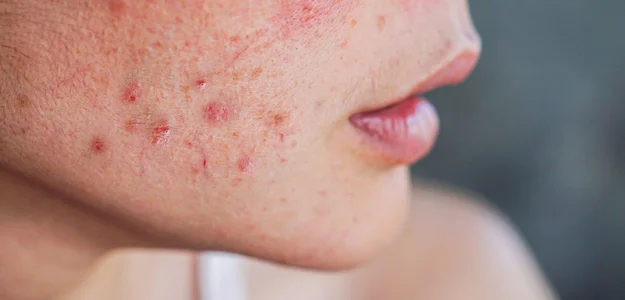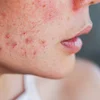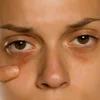
Acne - A common skin condition
Acne is a common skin condition that can affect anyone, regardless of age or gender. It can occur on various body parts but is most often seen on the face, back, and chest. The presence of blemishes, such as pimples, blackheads, and whiteheads, identifies the skin condition. Although acne is often considered a cosmetic problem, it can impact an individual's self-confidence and quality of life. Moreover, severe acne cases can result in permanent skin damage and scarring.
HormonesWhat Causes Acne?
A combination of factors, such as genetics, hormones, and environmental factors, can cause acne. Clogging hair follicles with oil and dead skin cells can cause inflammation and infection, resulting in pimples and other blemishes. Here are some of the causes of acne..
Hormonal fluctuations can play a major role in the development of acne. During puberty, for example, the body produces higher levels of androgens, which can cause the sebaceous glands to produce more oil. This excess oil can clog pores and lead to the formation of pimples and other blemishes.
GeneticsResearch suggests that genetics may contribute to the development of acne, as individuals with a family history of the condition are more likely to develop it themselves.
DietWhile the relationship between diet and acne is still being studied, some research suggests that certain foods may trigger or worsen acne. For example, high-glycemic-index foods, such as white bread and sugary snacks, can cause a spike in insulin levels, which may contribute to the development of acne.
Environmental FactorsExposure to certain environmental factors, such as pollution and high humidity, can also contribute to the development of acne. These factors can increase oil production and clog pores, forming pimples and other blemishes.
Features
How Can Acne Be Prevented Naturally?

While many over-the-counter and prescription treatments are available for acne, some prefer a more natural approach. Here are some natural remedies and lifestyle changes that can help prevent acne:
Features
Ayurvedic and Herbal Products For Acne Treatment

In conclusion, herbal products offer a natural and effective way to cure acne completely. Herbal products work on the main cause of acne without any adverse effects, making them a safe and mild substitute for traditional treatments. Adding herbal products to your daily skincare regimen can effectively cure acne and avoid future breakouts, resulting in healthy and glowing skin. Skin Care products from Pratvi Natural can help keep your skin healthy and glowing. Furthermore, we are a manufacturer, supplier, and wholesale dealer of herbal products to various industries and markets.


